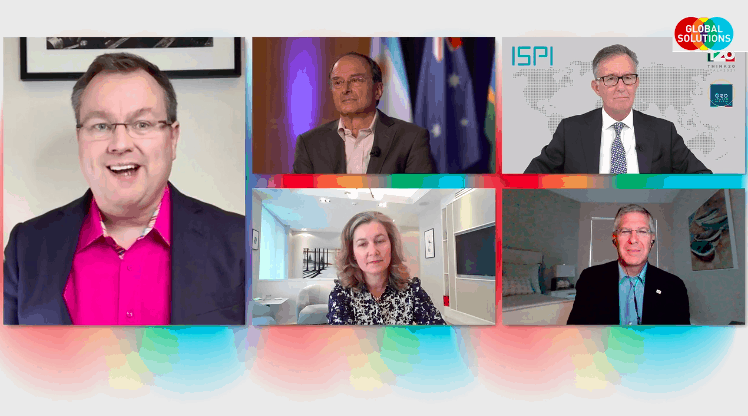The COVID-19 pandemic has put a spotlight on how interdependent the world has become: the virus has spread across the world in no time, has brought economies down and global debt levels up. It has shown how fragile many achievements are: inequalities were exposed and trust in government was eroded as individual freedom was constrained. And existing global challenges—climate change, biodiversity loss, migration pressure—remain. In some respects, the world has reacted with old habits, e.g. with major fiscal spending packages that preserve current jobs but not necessarily future jobs or the environment. But there have also been examples of change, e.g. new green deals in pursuit of the ambition to ‘build back better’. But we are not moving fast enough to address the systemic issues that existed before the pandemic and that continue to exist today. We would do better by fostering a great realignment. It has perhaps never been more urgent. Realignment must take place in five areas. Economic realignment requires a systemic transformation to ensure that economic activity serves the needs of all stakeholders, contributes to societal wellbeing, and operates within planetary boundaries. Ecological realignment demands that we offer the next generation a world at least as good as the current one. This requires a bold transition that we must all be willing to accept and support. Governance realignment requires the mindset of polycentric governance in which multiple actors cooperate across levels to spark collective action. Technological realignment demands mechanisms, regulations and principles to ensure that technological innovations contribute to human wellbeing and societal progress. Social realignment requires a focus on inclusive social prosperity and entails discussions about a new social contract ensuring social cohesion. This is the great realignment. The COVID-19 pandemic has been a global shock to the current system. It forced people to adapt their behaviour, and governments to devise supportive policies. But rather than falling back into old habits, we can now create momentum and take on the great realignment. The G20 is uniquely placed to initiate and steer this transformation.





